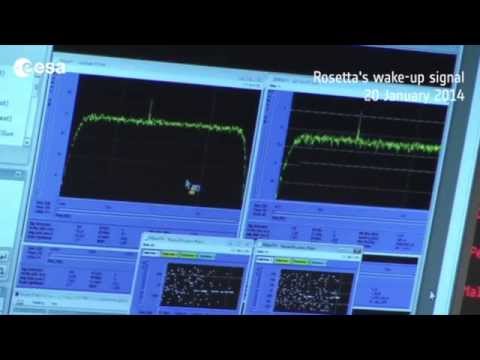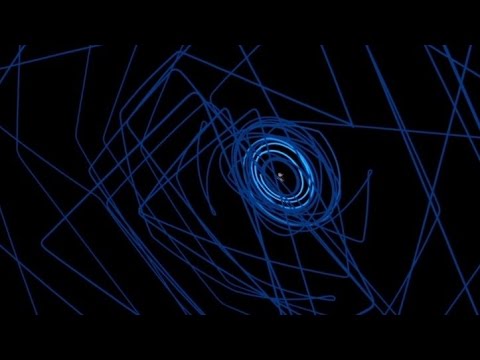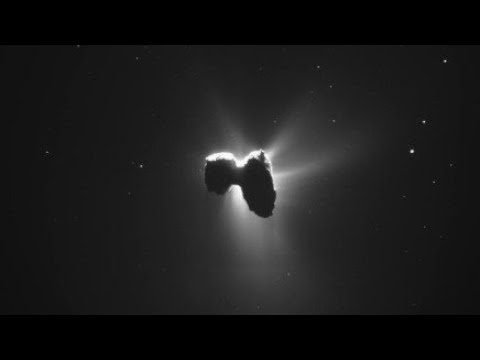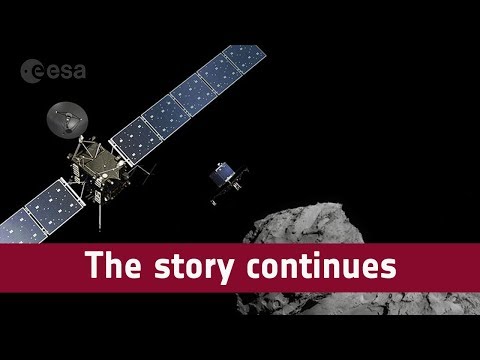Rosetta’s ongoing science
On 12 November 2014 Philae became the first spacecraft to land on a comet as part of the successful Rosetta mission to study comet 67P. Five years later, and after the mission’s official end in 2016, Rosetta is continuing to provide insights into the origins of our Solar System.
Rosetta’s instruments have already discovered that the comet contained oxygen, organic molecules, noble gases and ’heavy’ or deuterated water different to that found on Earth.
As scientists continue to analyse data from Rosetta’s instruments, including the ionised gas or plasma, the results are improving our understanding of comets. Mission data is also being delivered to an archive as a future resource.
Rosetta orbits the Sun every 6.5 years and will pass the Earth again, visible from ground-based telescopes, in 2021. ESA’s future Comet Interceptor mission will build on Rosetta’s success when it performs a flyby of a comet. But, unlike Rosetta, the comet will be new to our Solar System.
Learn more about Rosetta: http://bit.ly/RosettaESAhome
★ Subscribe: http://bit.ly/ESAsubscribe and click twice on the bell button to receive our notifications.
Check out our full video catalog: http://bit.ly/SpaceInVideos
Follow us on Twitter: http://bit.ly/ESAonTwitter
On Facebook: http://bit.ly/ESAonFacebook
On Instagram: http://bit.ly/ESAonInstagram
On Flickr: http://bit.ly/ESAonFlickr
We are Europe’s gateway to space. Our mission is to shape the development of Europe’s space capability and ensure that investment in space continues to deliver benefits to the citizens of Europe and the world. Check out http://www.esa.int/ESA to get up to speed on everything space related.
Copyright information about our videos is available here: http://www.esa.int/spaceinvideos/Terms_and_Conditions
#ESA
#Rosetta
#SpaceExploration





Baby has a ticket to ride man…. My hero…
I am so glad that I got to follow the Rosetta Mission from its initial planning stages all of the way to the present . Watching the live video feed of the Rosetta team waiting and watching the monitors and the excitement at each successful moment took me back to my youth when I watched the first man step foot on the moon (Yes, I'm old). When it came to our prior understanding of comets, this mission made me say, "We were right but, we were also wrong!" many times. In this video you could see the emotional excitement of the scientists as they discussed the science that they (we) learned from the Rosetta Mission. Thank you ESA and the scientists in this video.
Can we have a update on the 3d printed moon base?
ESA go